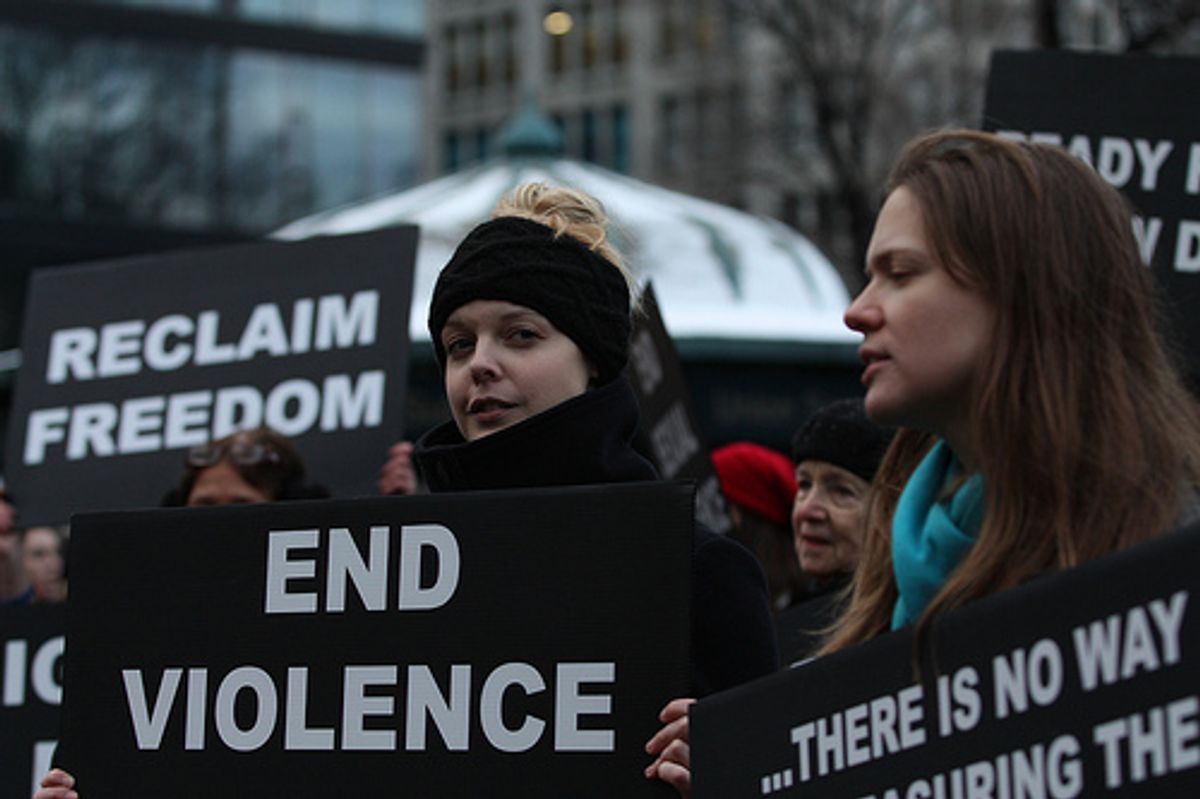Here's a hypothetical: A person comes home and finds that her house has been broken into, several of her electronics missing and presumably stolen. She calls the police and reports a burglary. Law enforcement officials launch an investigation. Eventually, if that investigation uncovers a suspect, the suspect might be prosecuted. If the suspect is found guilty, she or he might be punished. This is how "justice" is supposed to be doled out. This is the process for most crimes.
Except, it would seem, for sexual assault. According to a New York Times analysis, police in Florida and other parts of the country have a different method of addressing sexual assault allegations, which involves asking the accuser if she or he wants to move forward with an investigation -- instead of simply proceeding with an investigation as they would for other crimes:
Now an examination of other cases from recent years shows a pattern to the handling of sexual assault complaints by Florida State [University] students: After an accuser makes a police report and submits to a medical rape exam, the police ask if she wants them to investigate, and if she does not explicitly agree, they drop the case, often calling her uncooperative. ...
Interviews with prosecutors and a review of local news reports turned up just two arrests in that span by the Tallahassee police for sexual assaults on Florida State students. University police records show no arrests for forcible sex offenses from 2007 through 2013. Unlike burglary, sex is often consensual, so proving rape is hard; in some cases, prosecutors agreed with the police that the evidence did not support charging the suspect.
It is widely accepted that if a victim is adamant that she does not want a case pursued, law enforcement should take that into account. But reports from both city and university police departments show that unless accusers say firmly that they want cases investigated and prosecuted, officers have called them uncooperative and called off investigations.
The Times found that calling off investigations has likely resulted in a disproportionate number of dismissals for sexual offenses, which might otherwise have been prosecuted. The ostensible effort to respect victims' wishes and avoid pursuing cases without their consent, then, could ultimately undermine their stories and forgo any opportunity for delivering justice. This can be especially harmful to survivors of sexual assault in environments where they might be shamed or shunned for reporting a crime in the first place, as many college victims are. And so while law enforcement could claim to be offering victims an opportunity to reclaim some lost control over their lives by seeking input in pursuing investigations, it's possible that police only further isolate accusers by questioning their stories and leaving them without recourse.
In cases where police do pursue investigations without victims' explicitly urging them to, responses have been more positive. Kathleen M. Brown, an associate professor at the University of Pennsylvania, told the Times that by revising the approach to sexual assault investigations in Philadelphia, victims can receive more support during investigations. Victims are offered the opportunity to report a crime to the police and provide evidence; they can stop cooperating at any time, but either way, an investigation ensues.
“Agreeing to report is not the same thing as saying, ‘I’ll get up on the stand and testify,’" Brown said. "And that conversation shouldn’t happen until much later, if it happens at all."



Shares